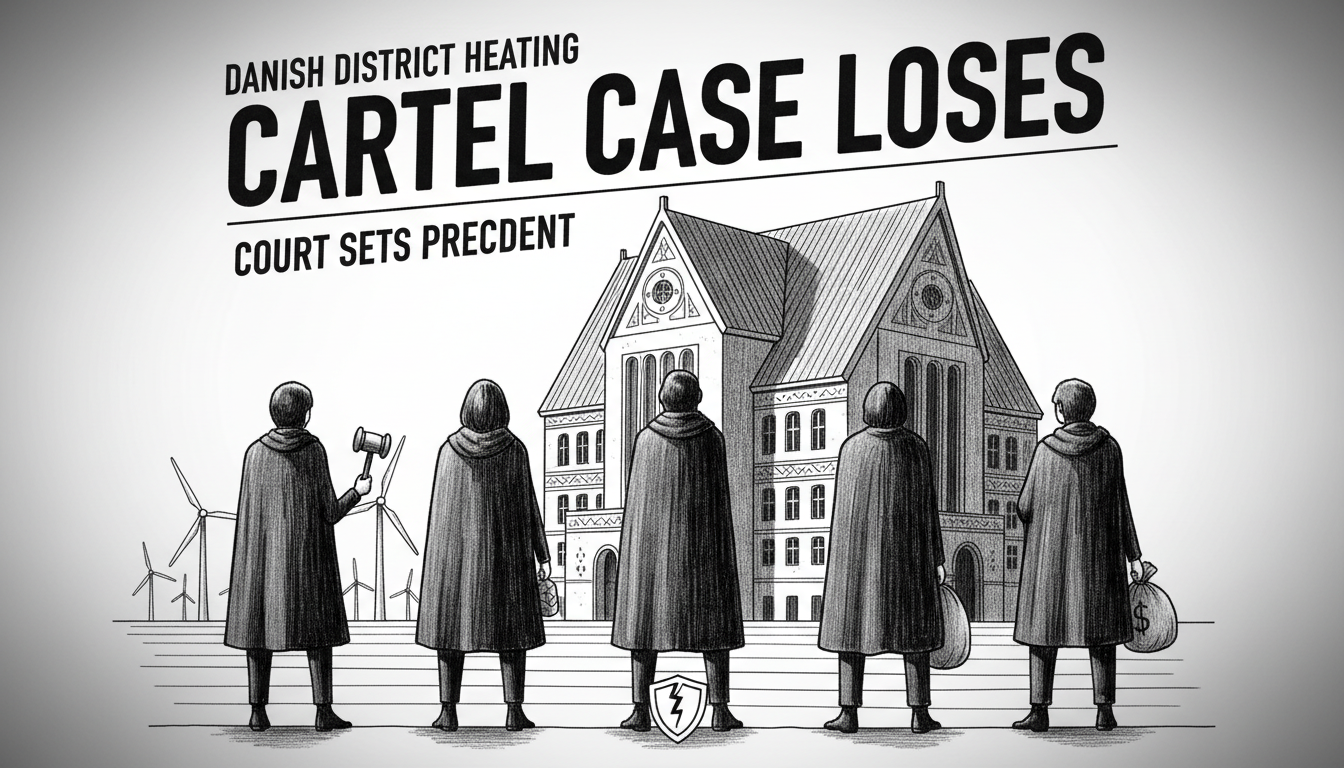Five Danish district heating plants and energy trading company Effekthandel have been fined for cartel formation in electricity markets. The Maritime and Commercial Court imposed civil penalties after finding the companies manipulated reserve capacity pricing.
The court confirmed the fines but has not yet published detailed judgment documents. Officials stated the decision requires anonymization before full public release. This includes specific penalty amounts and legal reasoning.
District heating plants provide both electricity and heat to Danish communities. The case centered on whether these plants artificially inflated prices for reserve capacity. This backup power ensures grid stability during high demand periods.
Competition authorities previously ruled that 49 plants violated market rules. They found Effekthandel coordinated pricing strategies among participating plants. The trading company communicated individual plant capacities and distribution formulas to members.
Plants received payments regardless of auction outcomes. Effekthandel collected commissions for managing the coordinated bidding. This system allegedly guaranteed profits while distorting market competition.
The five plants involved in this lawsuit include Brøns Kraftvarmeværk, Hvide Sande Fjernvarme, Jetsmark Energiværk, Øster Brønderslev Fjernvarmeværk and Bramming Fjernvarme. They sought to overturn the competition authority's original decision.
This case serves as a test proceeding with broader implications. The precedent likely applies to all district heating plants involved in similar practices. Danish energy consumers ultimately bear costs from such market manipulations.
Denmark's renewable energy sector faces increased scrutiny following this ruling. The country leads in wind power but maintains complex energy market regulations. Copenhagen business districts and Øresund region companies monitor these developments closely.
District heating provides over 60% of Danish household heating. Most plants combine electricity production with heat distribution. This case reveals challenges in regulating interconnected energy markets.
Energy market experts note this ruling could affect electricity prices across Scandinavia. Nordic countries share interconnected power grids. Manipulations in one market can influence neighboring countries.
The Danish economy depends heavily on stable energy markets. Export-oriented companies require predictable electricity costs. Cartel formations undermine Denmark's reputation for fair business practices.
This case demonstrates Denmark's active competition enforcement. Authorities regularly investigate potential market abuses. The renewable energy transition requires vigilant market oversight.
International investors watch Danish energy regulation closely. Copenhagen remains a hub for clean technology investment. Transparent market rules support continued green energy development.
What does this mean for Denmark's green transition? Market manipulations could slow renewable energy adoption. Consumers might question the cost structure of Denmark's energy transformation.
The court's full reasoning will emerge in coming weeks. The detailed judgment should provide clearer guidance for energy market participants. All district heating plants must now review their trading practices.

